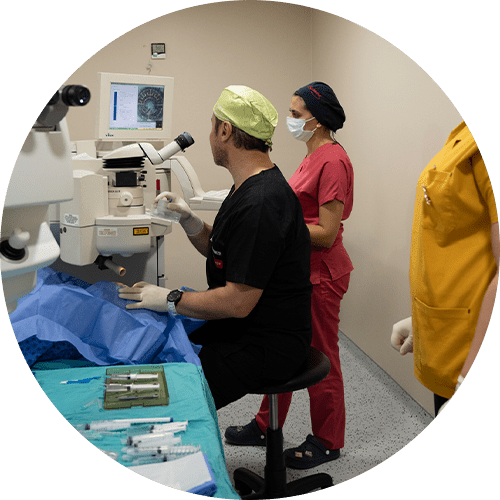CONGENITAL CATARACT TREATMENT

Detect early, act promptly
A congenital cataract is a clouding of the eye's lens that is already present at birth. In these cases, not only is vision impaired – the development of vision can also be permanently impaired. Therefore, the earlier it is detected and treated, the better the prospects for good vision.
Why is early surgery so crucial?
The lens plays a central role in visual development in the first months of life. If a congenital cataract is operated on too late, the eye may not be able to develop normal vision even after a technically successful procedure. Early surgery – ideally in the first weeks of life – is therefore crucial to avoid permanent visual impairment (amblyopia).
After surgery: treatment continues
Surgery is only the first step. Equally important is close follow-up care, which continues for months or even years. These include:
- Regular ophthalmologic checkups
- Fitting of suitable visual aids (e.g., glasses or contact lenses)
- Targeted amblyopia therapy (e.g., occlusion treatment with eye patches)
The goal is to actively promote the visual system and ensure the best possible visual development.
Interdisciplinary care is crucial
Some babies with congenital cataracts have additional health issues. Therefore, they should also be examined by a pediatrician for possible systemic diseases. Good cooperation between pediatricians, ophthalmologists, and parents is essential.
To ensure good vision from the start: Early detection. Careful treatment. Long-term care.
- MAKE AN APPOINTMENT

